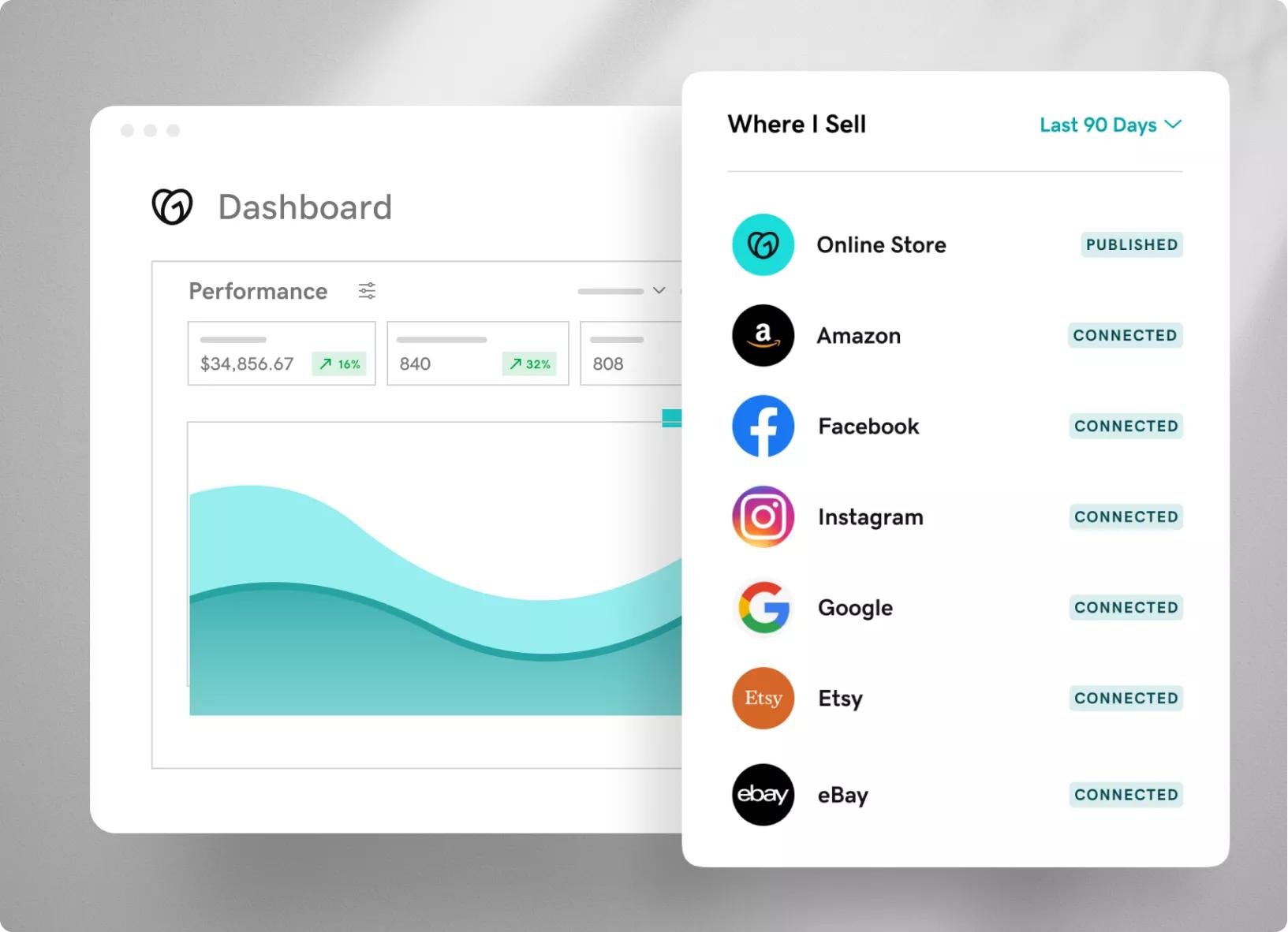Who's the best ecommerce website builder of 2024?
See a side-by-side comparison of the top ecommerce website builders. Look for key features for supporting ecommerce — like, payments, shipping, marketing, pricing, and site speed that best fits your online store needs.
Payment processor rates for major cards
2.7% + 30¢ per ecommerce transaction
Built-in marketing tools (social media, email, launch ads)
Includes free 100,000/mo. marketing email send, no fee for launching ads
Size limit per digital product
2.0 GB
Product limit
Unlimited
Allows clients to book classes & appointments directly on your site
Send appointment reminders by SMS & email
Website chat bot
Analytics dashboard with traffic, sales & marketing
Search engine optimization (SEO) features & tools
Google Core Web Vitals score**
Google Core Web Vitals is a pass/fail score that Google assigns sites based on user experience metrics. Sites that pass rank higher in search results, reduce the bounce rate, and improve overall experience.
Online auto inventory & product synch across channels
Discounted and promoted features (coupons, sales badges, gift cards)
Create multi-language website
Drop-ship options
Point-of-sale tools
Complete retail hardware kit, virtual terminal, mobile app, pay links
coding with the help of a developer. Additional fees may apply.
Our team researched available plans, spoke with support agents, and factored in ease-of-use, design, and pricing. If you find
discrepancies with the information, let us know. Information collected on 4/18/2024.
Why choosing the best online store builder is important.
For small business owners, choosing the top online store builder can help you succeed as you accept payments and manage fulfillment. So, look for easy setup, low payment processing fees, marketing tools to attract customers, top-notch security, and 24/7 live phone support.


Best online store templates for your business
GoDaddy Guide
Best ecommerce website builder FAQ.
How should I choose the best online store builder for my small business?
Tips to consider as you decide:
• Professional themes with responsive design.
Look for an online store builder with professional themes to give your website a beautiful, sleek design with just a few clicks. Plus, ensure the designs are responsive on mobile — many customers shop on their phones.
• Secure checkout on desktop or mobile.
Choose an ecommerce website builder that prioritizes security (SSL certificates and PCI-compliant standards encrypt customer payments) on desktop or smartphone to help your customers feel comfortable during checkout.
• Payment processing fees.
In addition to basic store builder costs, consider payment processing fees as a deciding factor. Many online store builders charge a flat rate, plus a percentage of the sale, which can quickly add up. So, find an option that fits your budget.
• Inventory management and marketplace integrations.
Customers want to find you where they shop — be it online stores, online marketplace like Amazon, or brick-and-mortar stores. So, seek out an online store builder linking to marketplace apps and inventory management to stay connected.
• SEO and social media integrations.
Creating a terrific online store is only the beginning— you need to help customers find it. Choose an ecommerce website builder that offers built-in SEO to find, attract and retain new and existing customers.
Which ecommerce platform is best for small business?
1. GoDaddy
2. Shopify
3. Wix
4. Squarespace
For more information, and to see for yourself, check out the comparison table above.
What is the best free ecommerce website builder?
Square also offers a free plan with limited features.
What is the best online store builder to track all sales across multiple platforms?
Which ecommerce website builder is easiest to use?
What is the cheapest ecommerce website builder?
With GoDaddy, you’ll enjoy an affordable monthly rate, low payment processing fees, and access to a wide array of built-in features, which will help you avoid unexpected costs down the road.
For its most premium plans, Squarespace doesn’t charge any payment processing fees (beyond the fees charged by the credit card processing companies) but has a more expensive monthly rate and fewer features than GoDaddy’s Commerce plan.
Wix, Square, and Shopify have more expensive monthly fees and charge more for payment processing than GoDaddy.